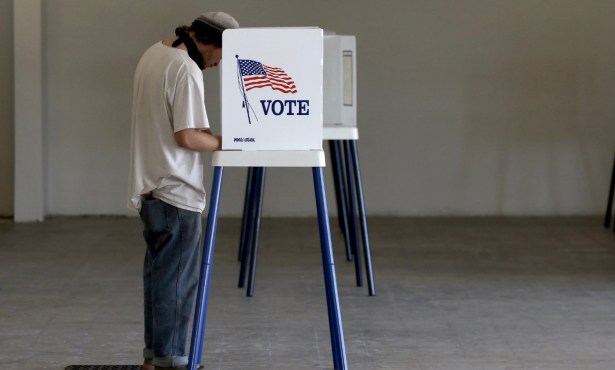Howling Winds, Howling Dogs
PICK YOUR POISON: Medical Pot Dispensaries May Reduce Traffic Deaths
PICK YOUR POISON: In courtroom disputes, it doesn’t much matter if you win by 12 miles or 12 inches; a victory is a victory. But in this week’s showdown between Santa Barbara City Attorney Steve Wiley and Patrick Fourmy, owner of the Compassion Center, Santa Barbara’s oldest medical pot dispensary, it appeared Wiley won by mere centimeters. I found it striking that Judge Colleen Sterne ruled there was no evidence to substantiate three out of the four claims made by Wiley to justify denying Fourmy the city permits needed to keep running his De la Vina pot shop. Fourmy, who opened his operation 11 years ago, took City Hall to court, claiming his application had been unfairly rejected. Only on one claim, Judge Sterne ruled evidence did exist to justify denying Fourmy a permit — that he had briefly opened a second dispensary without seeking city permits. But conspicuously, that issue played almost no role during deliberations to reject the Compassion Center’s application. I’m not here to make a saint or a martyr out of Fourmy. He’s a size-15 brain trapped in a size-9 cranium, and he can be, as the judge noted, his own worst enemy. But long before there were any rules and regulations on how pot shops should be operated, Fourmy ran his as if there were. He took pains to keep a low profile and get along with his neighbors. Where some other operators had let their pot-head clients toke up on the sidewalk, Fourmy worked behind the scenes with elected officials and law enforcement to make sure he stayed on the right side of an ever-shifting legal line.

Where exactly that line is, it’s turned out, depends entirely on the viewpoint of whoever’s looking. Initially, it was up to law enforcement officials to define, and they couldn’t agree. Now, it’s up to judges, and they can’t agree either. That’s because state law on marijuana is at odds with federal law. According to the feds, marijuana is lumped in the same category as heroin and LSD and has no redeeming medical value whatsoever. As such, it’s 100 percent against the law. State law, by contrast, is squishy in the extreme. In 1996, state voters decriminalized possession for medical purposes only. In 2004, the legislature passed a bill designed to clarify things, but failed utterly, especially when it comes to storefront dispensaries. Cities and counties have been forced to figure out what they can and cannot legally permit without running afoul of the feds. Based on recent court rulings, it seems there’s no right answer.
Complicating matters, the federal government has proved exceptionally inconsistent. Currently, the feds are targeting dispensaries for prosecution. For a while before that, they weren’t. And a few years before that, they were. During the first crackdown, the feds told Santa Barbara landlords then renting to dispensaries to shut down or risk having their assets seized. Many did. At the time, several dispensaries — like Fourmy’s — had been in business long before City Hall drafted any of its many pot-shop ordinances. Because of that, they enjoyed certain vested rights and could not summarily be shut down. In response to the federal decree, Wiley declared that any shop that ceased operation for 30 days or more lost their vested rights and had to cease and desist. On the basis of a drive-by, don’t-get-out-of-the-car inspection, city employees concluded Fourmy fell into this category, and Wiley ordered him to shut down. Fourmy refused, insisting he never stopped doing business, but merely moved his operations to the back of the store. Fourmy’s refusal to close up shop — on the weight of an admitted pseudo-inspection — was the initial basis by which Wiley argued the Compassion Center’s application should be denied. Now, having denied Fourmy the permit, Wiley is trying to shut the Compassion Center down for operating without a permit. If this strikes you as the equivalent of double jeopardy, you’re not alone. But given the violent disconnect between state and federal pot laws, such craziness is to be expected.
The good news is that last month, the California Medical Association (CMA) — representing 35,000 doctors — called on the federal government to legalize marijuana so that it can be regulated and taxed. The CMA also called on the feds to remove the drug from the heroin/LSD category so it can be scientifically studied for its potential medical benefits. Not surprisingly, California doctors are sick of finding themselves caught in the crossfire between state and federal laws. And prohibition, the CMA noted, has failed to stem the rising tide of recreational users. If people are going to get stoned, it makes sense for the government to regulate pot just as it does booze and tobacco. It’s a tired point, I know, but both are considerably more deadly than pot. According to the World Health Organization, alcohol kills 2.5 million a year globally, and in the U.S.A., it plays a significant role in at least 13,000 traffic fatalities a year. And then there are the 160,000 Americans killed by lung cancer every year, most of which is caused by smoking. With such kill rates — and the lack of any medical benefit — the feds could easily justify putting cigarettes and liquor in the same category as pot, heroin, or LSD. But we saw how well that worked during Prohibition. It’s worth noting that a study just released by a University of Colorado economist linked a 9-percent decrease in traffic fatalities — and a 5-percent drop in liquor sales — to the proliferation of medical marijuana dispensaries. Likewise, another recent study indicates there was no rise in teen pot consumption in Rhode Island after dispensaries were allowed in that state. This finding, however counterintuitive, conforms with what Portuguese authorities discovered. Five years after legalizing drugs, teen pot use in Portugal was the lowest in Europe. But my favorite study shows that pot helped prevent stressed-out Israeli lab rats from developing post-traumatic stress disorder.
In the meantime, the legal battle between Patrick Fourmy and Steve Wiley is far from over. For the moment, Wiley is ahead. But until the powers-that-be take the California Medical Association recommendation seriously, we’re all going to remain behind a very stupid eight ball. And not by 12 miles or 12 inches. More like 12 light-years.



